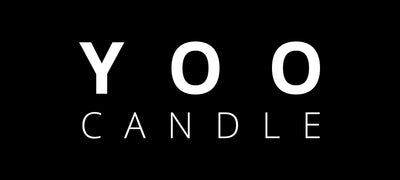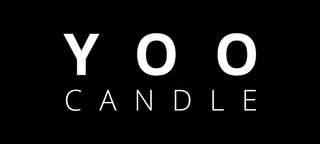Incorporating aromatherapy into your post-workout recovery routine - Comprehensive Guide

Incorporating Aromatherapy into Your Post-Workout Recovery Routine: A Comprehensive Guide
Discover the power of aromatherapy for post-workout recovery. This comprehensive guide explores essential oils for muscle soreness, stress relief, and enhanced sleep, offering practical tips and a personalized routine.Introduction: Elevate Your Recovery with the Power of Scent
In the fitness world, recovery is as vital as the workout itself. While stretching and hydration are staples, aromatherapy is emerging as a powerful holistic approach. This ancient practice harnesses the therapeutic power of essential oils to support both physical and mental recovery, offering athletes and fitness enthusiasts a natural path to post-exercise restoration.
Scientific evidence supports aromatherapy's role in recovery. A 2019 sports medicine review highlighted the potential of targeted essential oil interventions to reduce inflammation, ease muscle tension, and accelerate healing. This guide will transform your post-workout routine from a mundane task into a holistic healing experience. We'll provide practical insights, scientific backing, and actionable strategies to optimize your recovery journey.
1. Understanding Aromatherapy: A Journey Through Time and Science
1.1 A History Steeped in Healing
Aromatherapy uses natural plant extracts and essential oils to promote well-being. Its roots stretch back over 6,000 years, evolving from ancient Egyptian and Chinese medicinal traditions into a globally recognized wellness practice. The Egyptians, for instance, utilized aromatic plant compounds in religious ceremonies, medical treatments, and personal care. The term "aromatherapy" itself was coined in 1937 by French chemist René-Maurice Gattefossé, who witnessed the healing power of lavender oil firsthand.
1.2 The Science of Scent: How Aromatherapy Works
Aromatherapy's effectiveness stems from the powerful link between our olfactory system and brain. Inhaled essential oil molecules stimulate olfactory receptors, directly communicating with the limbic system – the brain's emotional control center. This explains why certain scents evoke memories, emotions, and physiological responses. For athletes, this translates to potential benefits like:
- Reduced stress hormones: Lowering cortisol levels.
- Modulated pain perception: Easing muscle soreness.
- Enhanced mood: Promoting feelings of calm and well-being.
- Supported immune function: Boosting the body's natural defenses.
- Accelerated recovery processes: Promoting faster healing.
2. The Recovery Benefits: Physical and Psychological Restoration
2.1 Physical Advantages: Soothe Your Muscles, Boost Circulation
Aromatherapy offers significant physical recovery benefits:
2.2 Mental Well-being: Stress Less, Sleep Better
Beyond physical benefits, aromatherapy supports mental health:
3. Essential Oils for Post-Workout Recovery: Your Aromatic Arsenal
3.1 Top Essential Oils and Their Applications
Here are some top choices and their recommended dosages (always dilute with a carrier oil like coconut or jojoba for topical use):
3.2 Choosing Quality Oils: Prioritize Purity and Sourcing
Select 100% pure, therapeutic-grade oils with:
- Organic certification
- Third-party testing results
- Clear sourcing information
- Absence of synthetic additives
4. Methods of Application: Diffuse, Apply, or Soak
4.1 Diffusion: Fill Your Space with Healing Scents
Use electric or passive diffusers for 15-30 minutes post-workout in a room at 68-72°F.
4.2 Topical Application: Targeted Relief
Dilute 2-3 drops of essential oil per teaspoon of carrier oil and apply to affected muscle groups.
4.3 Bath Soaks: A Relaxing Recovery Ritual
- Recovery Bath Blend: 4 drops lavender, 3 drops peppermint, 2 drops eucalyptus, 1/2 cup Epsom salts. Soak for 20 minutes.
5. Crafting Your Personalized Recovery Routine: A Step-by-Step Guide
5.1 Assess Your Needs: Intensity, Stress, Goals
Consider workout intensity, stress levels, and specific recovery goals when choosing oils and methods.
5.2 Sample Recovery Routine
6. Precautions and Considerations: Safety First
6.1 Safety Measures
- Perform patch tests before widespread use.
- Consult a healthcare professional, especially if you have pre-existing conditions.
- Avoid direct skin contact with undiluted oils.
6.2 Contraindications
- Pregnancy
- Respiratory conditions
- Known allergies
Conclusion: Embrace the Holistic Approach to Recovery
Aromatherapy offers a powerful, natural way to enhance post-workout recovery. By understanding its principles and implementing these strategies, you can improve physical healing, mental restoration, and overall well-being. Start incorporating aromatherapy today and experience the difference!
FAQ
Top 5 SEO Keywords:
- Post-workout aromatherapy
- Essential oils for muscle recovery
- Natural workout recovery methods
- Aromatherapy for athletes
- Fitness recovery techniques
---
Optimized with BlogPilot AI, your AI-powered blog assistant.

